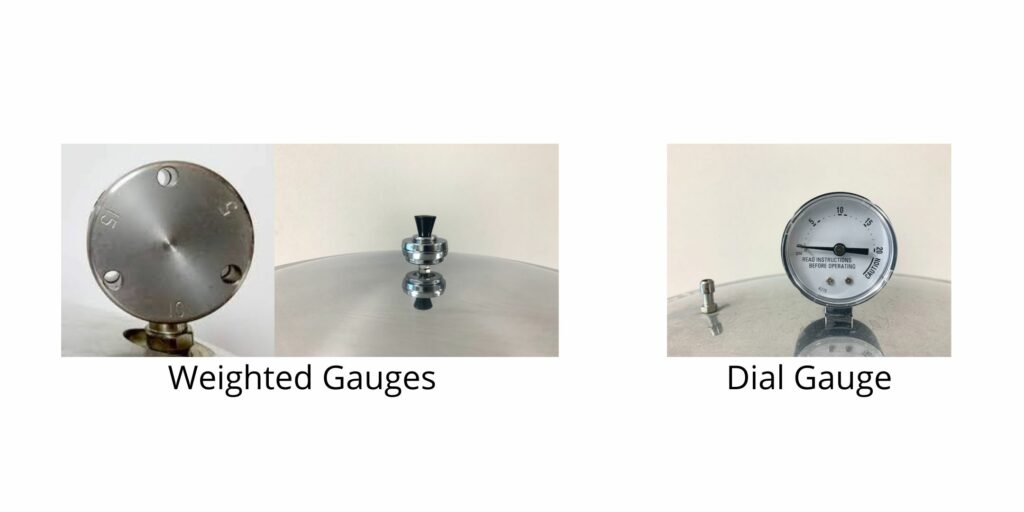What to Consider When Selecting a Pressure Canner
go.ncsu.edu/readext?818331
en Español / em Português
El inglés es el idioma de control de esta página. En la medida en que haya algún conflicto entre la traducción al inglés y la traducción, el inglés prevalece.
Al hacer clic en el enlace de traducción se activa un servicio de traducción gratuito para convertir la página al español. Al igual que con cualquier traducción por Internet, la conversión no es sensible al contexto y puede que no traduzca el texto en su significado original. NC State Extension no garantiza la exactitud del texto traducido. Por favor, tenga en cuenta que algunas aplicaciones y/o servicios pueden no funcionar como se espera cuando se traducen.
Português
Inglês é o idioma de controle desta página. Na medida que haja algum conflito entre o texto original em Inglês e a tradução, o Inglês prevalece.
Ao clicar no link de tradução, um serviço gratuito de tradução será ativado para converter a página para o Português. Como em qualquer tradução pela internet, a conversão não é sensivel ao contexto e pode não ocorrer a tradução para o significado orginal. O serviço de Extensão da Carolina do Norte (NC State Extension) não garante a exatidão do texto traduzido. Por favor, observe que algumas funções ou serviços podem não funcionar como esperado após a tradução.
English
English is the controlling language of this page. To the extent there is any conflict between the English text and the translation, English controls.
Clicking on the translation link activates a free translation service to convert the page to Spanish. As with any Internet translation, the conversion is not context-sensitive and may not translate the text to its original meaning. NC State Extension does not guarantee the accuracy of the translated text. Please note that some applications and/or services may not function as expected when translated.
Collapse ▲Home canning low acid foods (foods with a pH of lower than 4.6) like vegetables, meat, poultry, fish, tomatoes, or combinations of these foods require the use of a pressure canner to properly process jars for food safety. Improperly home-canned foods have been known to cause botulism, a severe type of foodborne illness resulting from the toxins of Clostridium botulinum bacteria. If you are in the market for a pressure canner, here are some things to consider while you shop.
Canner, Not Cooker
As you make your selection, make sure you are choosing a pressure canner. Pressure canners are also used for cooking, but pressure cookers are not used for canning. Do not choose a pressure cooker or a multi-cooker, like an Instant Pot, as these types of devices are only appropriate for pressure cooking food and cannot be safely used for canning.
Weighted gauge or dial?
Next, you’ll want to consider whether you’d like to have a pressure canner with a weighted gauge or a dial gauge. Weighted gauges offer greater precision and do not require accuracy testing. Dial gauges are accurate +/- 2 pounds per square inch. If you are canning at a higher altitude, a dial gauge will offer you greater flexibility to control and adjust pressure, which may help you avoid over-processing food. Dial gauges will need to be tested every canning season for accuracy, so choose a model that can be conveniently tested as needed. N.C. Cooperative Extension, Burke County Center offers free dial gauge testing, but not for every pressure gauge model. Contact the office to find out which models we test. If you choose a canner model that cannot be tested by N.C. Cooperative Extension, Burke County Center, check with the manufacturer to find out whether they offer to test dial gauges and how you can utilize their services.

Can your cooktop handle it?
Lastly, you’ll want to make sure that you can properly and safely can on your stove or cooktop. Sustained heat is necessary for safe processing. Some range tops cycle on and off and cannot be safely used for canning. If you have a flat top range, you should check with the manufacturer to verify whether or not your cooktop can handle pressure canning. The canner bottom should not be more than 1-inch larger than the cooking eye.
For more information on selecting a pressure canner, give us a call at 828-764-9480 or email Emily Troutman, FCS Agent at emily_troutman@ncsu.edu.




